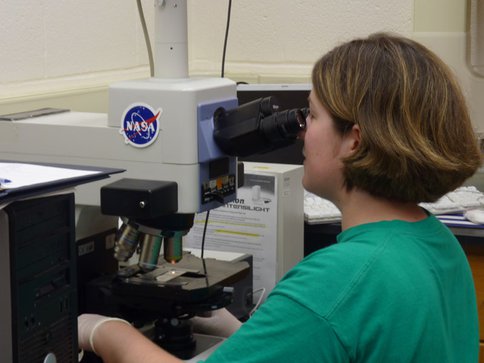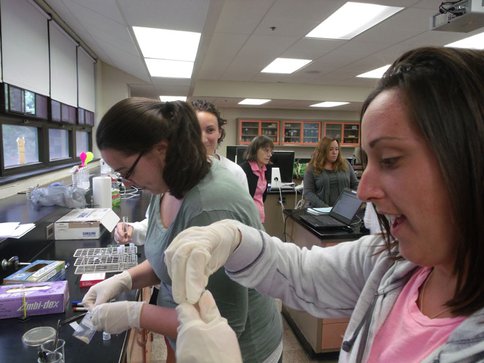2012 Annual Science Report
 Pennsylvania State University
Reporting | SEP 2011 – AUG 2012
Pennsylvania State University
Reporting | SEP 2011 – AUG 2012
EPO Activity: EPO: Astrobiology Workshops for Educators
Project Progress
In summer 2012, in collaboration with the PA Space Grant Consortium, PSARC supported two astrobiology workshops for in-service K-12 educators. One workshop was held at the Penn State University Park campus and the other was held at the Penn State Abington campus near Philadelphia. The workshops were “Astrobiology: The Interdisciplinary Search for Life in the Cosmos” (University Park) and “Astrobiology for Educators: Is There Life Beyond Our Planet? And How Would We Know?” (Abington).
20 teachers participated in the workshop at University Park. This five-day, two-graduate credit workshop was designed to introduce teachers to current research in the field of astrobiology and to help teachers use this exciting topic to engage students in scientific inquiry. Participants in the workshop created a definition for a living organism, collected data on an anerobic environment thriving with microbes, and debated the rarity of our planet as they learned about the co-evolution of Earth and life. Teachers explored how our understanding of the requirements of life has changed over the past 30 years, and learned how current research is revealing an ever-greater diversity of life. Penn State scientists shared the latest research about the rise of oxygen on Earth, extreme conditions in which life exists, and plans for NASA’s search for life in the universe. The teachers were introduced to the field of astrobiology and participated in activities from the “Life on Earth and Elsewhere” Educator Resource Guide.
10 teachers participated in the Abington workshop. This five-day, two-graduate credit workshop was designed to explore the world of astrobiology and to capture the attention of students and encourage their interest in the sciences. This interdisciplinary course included a variety of inquiry-based activities and topics included the detection of planets around stars other than the Sun, conditions for the support of life elsewhere in our Solar System, and extreme forms of life on Earth.
Support to teachers included housing and meals as well as NASA educational materials to take back to their classrooms. Also tuition for two graduate credits was provided. The workshop was approved by the Pennsylvania Department of Education for Act 48 Professional Development credit.
The workshop evaluation included a daily formative evaluation, an online summative professional development questionnaire developed by the Horizon Research, Inc. and a small focus group discussion. The evaluation techniques were intended to measure the effectiveness of workshop design for increasing teacher content knowledge and improving student learning in the middle and secondary classroom.
K-12 educators participate in an astrobiology educator workshop at Penn State – University Park in summer 2012.
K-12 educators participate in an astrobiology educator workshop at Penn State – Abington in summer 2012.

